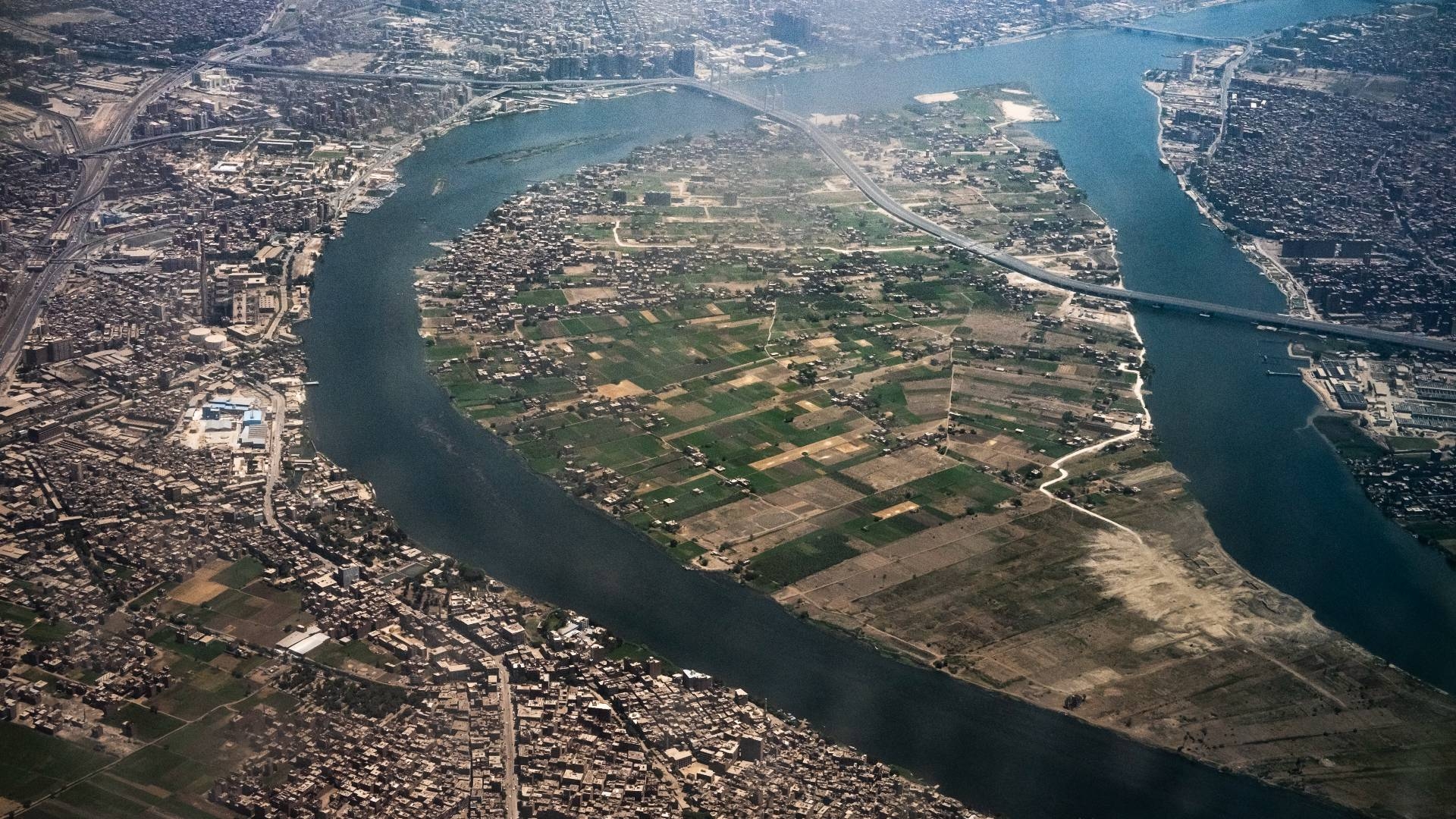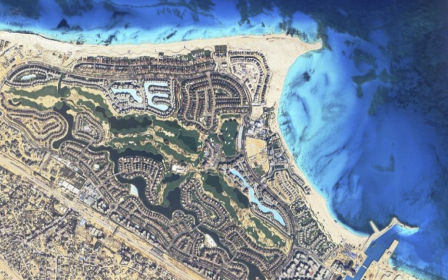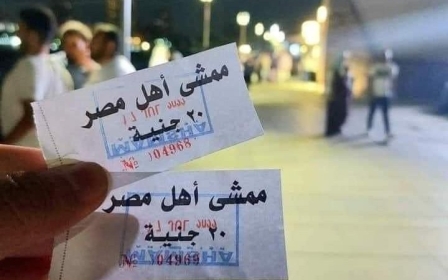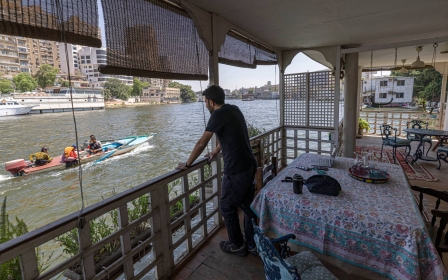Egypt: Police arrest seven people protesting home demolitions in strategic Nile island

Egyptian security forces detained seven people on Monday from the Warraq Island on the Nile river in the Giza Governorate, following protests against government plans to remove residents from their homes and make way for a set of development projects.
According to eyewitnesses and local media reports, dozens of Egyptian police officers stormed the island, connected to the mainland only by ferries, and violently dispersed a crowd of demonstrators.
Video footage on social media showed residents panicking, as police officers fired tear gas canisters.
Authorities had landed on the island to take measurements of some houses in Hawd al-Qalamiyeh area, which is set for demolition.
New MEE newsletter: Jerusalem Dispatch
Sign up to get the latest insights and analysis on Israel-Palestine, alongside Turkey Unpacked and other MEE newsletters
Fourteen protesters were initially detained, accused of preventing authorities from carrying out their work, before half of them were released in the evening.
Some protesters shouted, "We will not leave it to the thieves", as scuffles and clashes erupted. Others hurled stones at the authorities, who withdrew from the island after almost seven hours of confrontation with local residents.
The Land Center for Human Rights, an Egyptian NGO group, said security forces had "arbitrarily arrested some residents because they were defending their homes and lands", and that displacement orders threaten the lives of thousands of people on the island.
However, the NGO added that Egyptians in Warraq Island refuse to leave their homes and keep protesting the government's actions.
Horus Island
Warraq is the biggest island on the Nile River in Egypt, where an estimated 100,000 people live and work mostly in fishing and farming. The island of 6.36 square kilometres was once a prosperous farming community, but has become urbanised in recent decades.
The government said early in August that it acquired 71 percent of the island's land, which it renamed "Horus Island" after an ancient Egyptian deity.
In July 2017, one Egyptian was killed and dozens of people, including police officers, were injured in a confrontation on the island over the expulsion orders.
Around 35 residents were sentenced to lengthy imprisonments in December 2020 for "preventing authorities from carrying out their duty".
Egyptian security services have kept a tight grip over the strategic island, one of 255 islands in Egypt, checking passengers' IDs to and from it by ferries, which link it to Cairo and Qalyubia governorates. Egyptian police consider residents in Warraq Island as squatters who have encroached on state-owned lands.
Hospital and schools demolished
In late July, Egyptian forces demolished a hospital and a youth centre on the island, and destroyed two schools which served 6,500 students.
The Socialist People's Alliance Party (SPAP), an Egyptian leftist opposition faction, described the demolition operation as a "crime".
It added that the government policy of "maximum pressure" on residents of Warraq Island is an attempt to force them to evacuate their homes and lands in the area where they have lived for hundreds of years.
Early in 2017, Warraq Island was excluded from Egypt's nature reserves list, which paved the way for development projects in the following years. So far, Egyptian authorities have set their sights on almost 2,458 homes.
According to the official State Information Services, the government's development plan is to build 94 Manhattan-style residential towers on the island, which includes almost 4,092 housing units. It will also build seven-star hotels, schools, youth centres, shopping malls, two marinas for yachts, a river corniche, and a grand park.
The project's total operational cost is 17.5 billion Egyptian pounds ($914m).
SPAP condemned displacing Egyptians from their houses on Warraq Island and said the projects, which claim to contribute to the public benefit, "rob [citizens] inherent rights to housing and property".
In 2002, Egyptian residents of Warraq Island won a court case which asserted their land ownership, saying that the government owned only 31 acres of the island through the Islamic Waqf.
Middle East Eye delivers independent and unrivalled coverage and analysis of the Middle East, North Africa and beyond. To learn more about republishing this content and the associated fees, please fill out this form. More about MEE can be found here.




